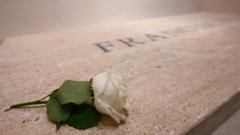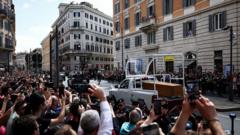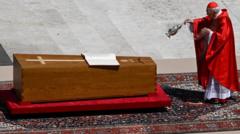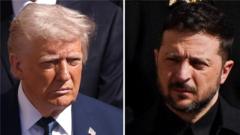Following Pope Francis' death, the potential election of his successor is marked by existing ideological divides among cardinals. While some advocate for a call to "unity," others interpret it as a move to reverse inclusive reforms championed by Francis.
Divisions Emerge Among Cardinals as They Prepare to Choose Pope Francis' Successor

Divisions Emerge Among Cardinals as They Prepare to Choose Pope Francis' Successor
As the Catholic Church mourns Pope Francis, conservative cardinals rally for a return to tradition, sparking concern among reform-minded clergy.
As the mourning for Pope Francis transitions into the crucial task of selecting his successor, the ideological rifts among Cardinals are becoming more apparent. Following the passing of Pope Francis on April 26, 2025, conservative factions within the church have begun a campaign emphasizing a call for "unity." This seemingly innocuous motto, however, is interpreted by many as veiled opposition to Francis's more inclusive initiatives, which aimed to broaden the church's appeal.
Cardinals have been gathering at the Vatican in earnest discussions leading up to the conclave set to begin in early May. They are wrestling with significant dilemmas such as whether the next pope should continue Francis's push for women deacons, the ordination of married clergy, and offering communion to divorced Catholics who have remarried. These matters are contentious, driving passionate debate regarding the future direction of the church.
Gerhard Ludwig Müller, a prominent conservative cardinal, articulated his arguments for unity after one of the recent meetings. His rhetoric reflects a broader strategy among conservative cardinals who contend that the past pontificate has harmed the church's traditional values. As the conclave approaches, this tension foreshadows a pivotal moment in the church's future, determining the extent to which Pope Francis's legacy will influence his successor's agenda.





















